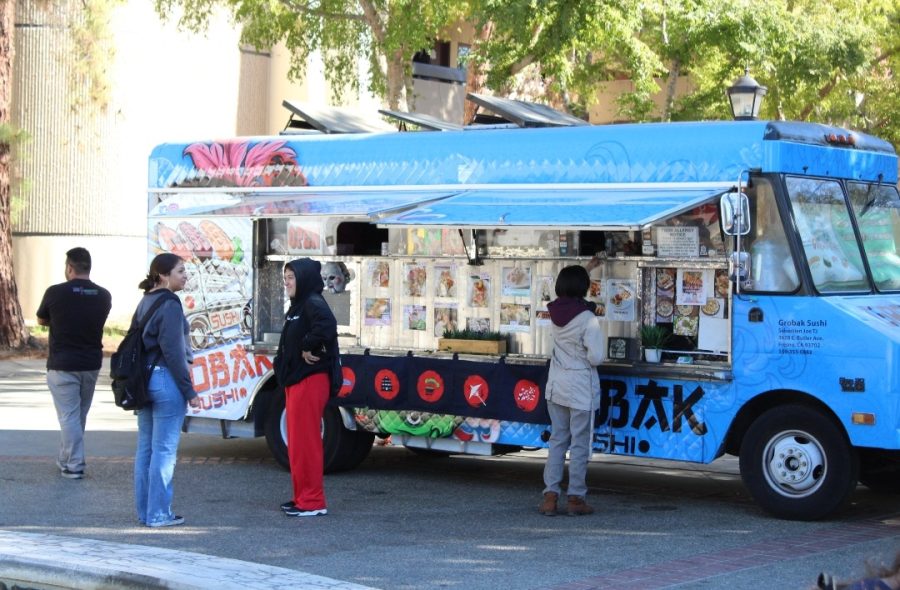In order to understand my culture you have to understand my roots, where it is I come from, and the people that made those roots possible. My life has been a tug-of-war between my very different parents.
I am the product of an interracial relationship. My father is African-American and my mother is French. My father grew up in greater parts of Texas and California, enlisted in the US Marines at the age of seventeen, and later worked both as an aircraft mechanic and psychiatric technician; now he pastors a small church in southwest Fresno. My mother was born and raised in southern France; her father, a military man, gave her the edge to become a pilot and later an aircraft mechanic. She eventually met my father, who was also an aeronautical engineer, while working with United Airlines.
My mother, born Catholic, was the only member of her family to migrate to the States, which has affected the result of my upbringing. During my youth, we made an effort to visit the homeland every other year, but after my sophomore year of high school, we have yet to visit again. My mother enveloped me in French culture, teaching me the language and traditions, but I always felt there was something missing.
The French raise their children reverse in comparison to Americans, in the sense that there is a difference in rearing a child before and after the stage of the teenage years. In American society, the child is allowed to let loose and be free; playing in the mud and eating mounds of candy. When the child reaches that tipping point in age, the parents often tighten the leash with rules and restrictions. French culture is the opposite in that the leash is first tightened in the preadolescent years. Kicking and screaming is silenced with a stern and strict regiment. Later, after the child has made the change of becoming their own and because the rules and restrictions have been instilled, free reign is admitted and the leash is loosened, if not let go entirely. The parents understand their part has been done and it is then up to the child to maintain the principles, at heart.
I was born in San Francisco, but raised in Paso Robles, California, where my parents separated when I was three. My mother stayed in Paso while my father moved to Fresno where he had relatives.From then on I was shared between two hundred miles, there and back, every weekend until grade school, whereupon the agreement was changed to every other weekend. My father became known as “weekend dad”, but I never took him for granted.
After the age of eleven I made the transition to live with my father; it was in my best interest to be with my father. Things changed and my mother became “weekend mom”.
The shift from mother to father during my shift in age was difficult given a certain expectancy that the leash would gain slack, but instead it was further tightened by American culture, thus suffocating my ability to breathe liberally. My father, being a strict Christian pastor and ex Marine, did not appear resilient.
Having known about my African-American heritage, I experienced more when I stationed myself in Fresno. Pride in what you do seems important. My father has taught me that a man’s integrity is his most binding value of self worth. Family values are held to the utmost high. From a recent trip to Texas, I visited relatives that my father and had neither heard of nor seen. They embraced me with open arms, as if I had been around all my life. Time spend with them felt unnaturally natural. Even in Fresno, family is tight. Where my mother had no relatives within reach, my father has access to my aunt’s family and my grandfather.
My grandfather, on my father’s side, was a WWII Normandy frontsman who grew up during the roaring twenties. He has twenty-three known children; most of which reside in Texas. He was often absent in my father’s upbringing which may reflect why and how my father chose to raise me differently.
Coming from a biracial family, I have experienced my fair share of prejudicial hate. Because of my light complexion, people often question who or what I am. Are you Black? Are you White? I’ve even been called Hispanic. To them I reply, why does it matter? I do not conform to either side more than the other; however, I take pride in knowing a second language.
I never had the option or opportunity to discriminate under the conditions of my upbringing. To single out a preference, would be to single out myself. When I hear the stereotypes of Blacks and Whites, I laugh. I can’t imagine viewing life through colored lenses. Both my parents have taught me that all people bleed red, so that makes them the equal.
Categories:
Finding a balance, the Bi-racial tug of war
Story By: Tim Limbrick
March 25, 2009
0
More to Discover



